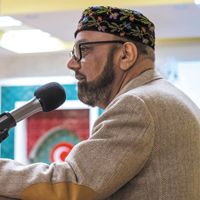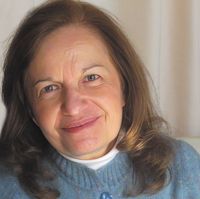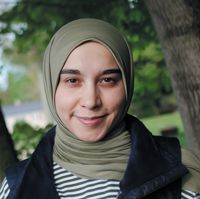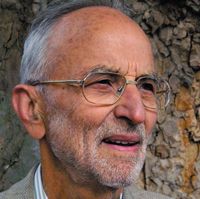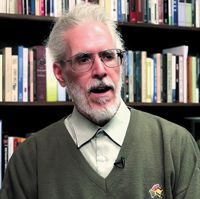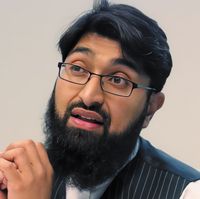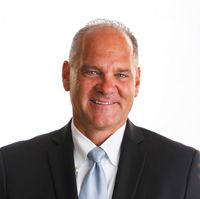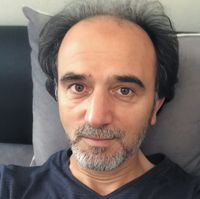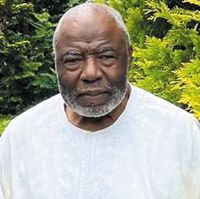
A Lasting Legacy
A Lasting Legacy
In This Article
-
Humanity will continue to uncover the depth of his contributions, whether in education, interfaith relations, fostering global peace and harmony, or his unwavering service to humanity.
-
In the Qur’an, we are reminded that the path to salvation and blessings is the one followed by those who have been favored.
-
Simply being in the company of the right people and part of the right mission brings Allah’s mercy and favor.
“A person who was non-existent, but we gave him life and then we gave him a noor, a light, and then he walks among people with this light. Do you think this man can be equal to those who are still in darkness?” (al-An’am 6:122)
“Indeed, those who are Allah's friends (those who are God's beloved), they do not fear, and they do not grieve.” (Yunus 10:62)
Prophet Muhammad (peace be upon him) says, an alim (scholar) who is genuinely devoted to this religion, is an heir of the Prophet.
In recent months, many significant events have taken place around the world. Among them is the profound loss this ummah (community) has experienced with the passing of one of its great scholars—a great reformer, renewer of the faith, and Mujaddid, who gave this religion new life during times of weakness. I speak of the great Ustad Sheikh Fethullah Gülen, who left this world on October 20th. Who could have thought that this Imam, born into a poor family and without attending the world's prominent and powerful institutions, could inspire such a transformative reform in Muslim society and the broader Muslim community?
Humanity will continue to uncover the depth of his contributions, whether in education, interfaith relations, fostering global peace and harmony, or his unwavering service to humanity. There is scarcely an area of human life untouched by the impact of his remarkable efforts.
In the modern age, we often evaluate issues through a worldly lens, seldom delving into their spiritual roots and foundations. Our Prophet (peace be upon him) was the greatest reformer in human history, and his life encompasses numerous profound dimensions. We highlight his role as a teacher, as he himself said, “I am sent as a teacher to you.” We reflect on his justice, his excellence as a judge, his courage, and how great he was as a husband. So, we study every dimension of his life. Yet, we must never forget that the foundation of every action and role of the Prophet (peace and blessings be upon him) does not stem from acquired skills as we understand them, but from his Nubuwwah, his Prophethood. He was guided directly by Allah, and his heart served as a reservoir of divine knowledge, bestowed upon him by God Himself—knowledge that cannot be attained through human effort or any worldly institutions. Similarly, the great scholars in the history of Islam—such as Imam Ghazali, Sayyidina Abdul Qadir al-Jilani, Imam Abu Hanifah, and in our age, I would say, Sheikh Gülen—are figures whose success and efforts cannot be fully understood from a purely material perspective. Their achievements cannot be attributed solely to careful planning, intelligence, or skillful management of situations. Instead, the root of their success lies in their status as beloved servants of Allah (Glorified and Exalted is He). They are endowed with an inner light and spirituality, which serve as the foundation of every action they undertake.
In the Qur’an, we are reminded that the path to salvation and blessings is the one followed by those who have been favored. In Surah Al-Fatihah, we ask to be guided to the straight path. Every day, through our prayers, we repeatedly seek guidance to the way of righteousness—the path that leads to Paradise and salvation. The response to this prayer teaches us that the straight path is the one walked by those who have received divine blessings. The straight path is not defined by simply reading a specific book or attending a particular school. Instead, it is the path where the blessed people are found. At the top of this group are the Anbiya—the Prophets—who were directly guided by the Divine. However, it extends beyond them. As the Qur’an explains, these blessed ones include the Prophets, the Siddiqeen (the truthful), those who have done the ultimate sacrifice, and the pious. Many individuals fall into this category, and it is crucial for us to seek guidance from those truly blessed.
In Sahih Muslim, Imam Muslim emphasizes the importance of knowing that your religion is correct. It’s not biology, mathematics, or archaeology—it is your deen, your faith, upon which your salvation in the hereafter depends. “Be extremely careful from whom you get your religion,” he advises. Who is that person? The source of your religion and guidance must be someone who truly falls into the category of the blessed. These individuals represent the true path.
Whenever the religion of Islam declines, and the ummah (Muslim community) suffers from weakness, darkness, and doubt, unsure of the direction to take, these blessed people rise to guide us. The Prophet (peace be upon him) said, “Every 100 years, Allah will raise someone to renew this deen,” ensuring that it does not weaken or lose its vitality.
Consider post-World War Turkey: the Ottoman Empire had collapsed, its territories divided, the Muslim world totally occupied, and Turkey itself faced constant external threats while struggling to maintain its integrity. At the same time, an internal revolt against religion arose, with atheism, secularism, communism, and disbelief attacking Islam from all sides. In such an environment, a rational observer—like one of us teaching in universities—might simply give up, overwhelmed by the forces aligned against them. They would see the battle as lost, believing there was nothing left to be done.
But Allah raises individuals like Sheikh Fethullah Gülen, who find ways to renew Islam in the most challenging circumstances, such as the decline of the Ottoman Empire. This aligns with the Prophet’s teaching (peace and blessings be upon him): “Be very careful of a believer’s insight, for he sees with the light of Allah.” What such individuals perceive often escapes the understanding of ordinary people, leading us to wonder, “How is this even possible?”
Prophet Abraham (peace be upon him) built the Ka’ba in a barren desert, a place without water, population, or a city—far from the caravans and bustling trade routes. Rational minds might question his decision: “O Ibrahim, why not build the Ka’ba in a thriving city where people can worship? Why choose this desolate, barren land?” But the vision of God's people is different.
They perceive and understand through the divine light Allah (SWT) places in their hearts. As Prophet Abraham (peace be upon him) said, “I have placed my family in this barren, desolate land, but You, O Allah, can draw the hearts of people to this place.” And indeed, we witness how the hearts of people from all over the world are drawn to it.
Imam Ali Zainul Abidin, in his prayers, says: “Oh our Lord, we did not seek power, but You have turned the hearts of people toward us. They come to us with love, obey us, and seek to accept our guidance.” Here, the source of power, knowledge, and wisdom is entirely different from our usual mental, rational, and intellectual calculations. While we tend to measure everything—profit and loss, the alignment of worldly forces, and where they are absent—this divine guidance operates on a plane beyond human calculation.
Such individuals are truly a gift to humanity from God. They are His beloved. Just as humanity has not forgotten Imam Ghazali or Sayyidina Abdul Qadir al-Jilani, it will never forget Sayyidina Imam Hussein. From a worldly perspective, Hussein was mercilessly killed along with his family on the battlefield of Karbala. Yet, whose name remains as the embodiment of the Prophet’s message? It is Imam Hussein. Worldly powers may come and go, but it is these blessed individuals who endure in the love and remembrance of Allah and humanity.
There is a widely agreed-upon hadith in Sahih Bukhari and Sahih Muslim in which the Prophet (peace and blessings be upon him) said that when Allah loves one of His servants, He calls Gabriel and says, “Oh Gabriel, such-and-such person is My beloved. I love them, so you should also love them.” Then He commands, “Announce this in the Kingdom of the Heavens and let all the angels know that such-and-such person is beloved by Allah.” The Prophet added, “When this love is established in the Heavens, it is also established on Earth.” This is why, no matter what humanity does, it cannot eliminate this love or remove it from the hearts of people.
When God’s beloved people take on a mission, it brings blessings and barakah. Those who join such movements or struggles, even if they fall short in their own character or deeds, still become recipients of that blessing. Simply being in the company of the right people and part of the right mission brings Allah’s mercy and favor. When we attach ourselves to those whom God has blessed, love and respect them, and contribute to the mission they have undertaken to the best of our ability, God blesses our lives as well, bringing barakah (an abundance of blessings) into them. We hope that, through His mercy and the barakah of these great individuals, we too will find salvation.
I was fortunate to visit Sheikh Fethullah Gülen about a year ago. When I saw the room where he was living in Pennsylvania, I noticed he had nothing in his room—just a bed, an ordinary bed, and a couple of simple items. And I thought to myself, this is the man who has inspired hundreds, even thousands, of people all over the world to establish schools, hospitals, welfare centers, and universities, and yet he himself lives so simply. He has absolutely nothing, seeking nothing from this world. The Prophet (peace be upon him) said, “The legacy of the Prophets is that they leave nothing worldly behind; their legacy is knowledge.” Sheikh Gülen embodied this perfectly. He took nothing from this world—absolutely nothing—but gave so much to it. It teaches us not to seek for ourselves but to give to humanity, to work for the welfare of others. And we hope and pray that, through the blessings of such individuals, Allah will bring us salvation.
